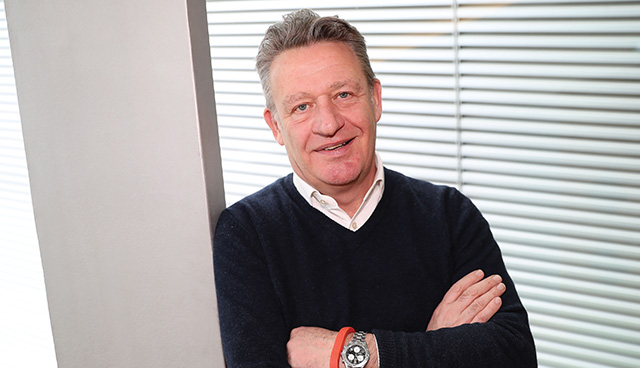Digital transformation: The UK model

Kevin Cunnington took up the role of the UK’s Director General of the Government Digital Service (GDS) in 2016. On joining GDS, he also became Head of Function for Digital, Data and Technology. He is therefore responsible for building capability across government, setting the strategy for the national GDS Academy training programme and formalising the digital, data and technology profession.
Cunnington joined GDS from the Department of Work and Pensions, where he was Director General of Business Transformation. Before joining Government, he worked in the telecommunications sector with T-Mobile and, most recently, as the Global Head of Online at Vodafone.
Cunnington believes his experiences in the private sector leading large-scale digital transformation programmes have enabled him to help government transform services through innovation and building capability.
The United Nations recognises the UK as the world leader in digital government. And this is a position that Kevin Cunnington, Director General of the Government Digital Service, wants to maintain.
Speaking at agendaNi’s Digital Government 2018 Conference, he outlined the three themes he believes will keep the country at the top: innovation, capability and seizing the ‘once in a lifetime opportunity’ that UK Exit from the EU offers for service transformation.
Cunnington said: “The work that I lead at GDS is truly helping to transform government. By bringing innovation into government, building capability and making the centre more streamlined, we are well on the way to realising our ambitions.”
Innovating in government
Cunnington sees the opportunity for government to use innovative technologies to solve public-sector problems. He highlights two examples of programmes that are taking this forward.
The first is the £20 million GovTech challenge fund announced by Prime Minister Theresa May at the end of 2017, sponsoring departments to tackle innovative problems or use innovative technology with full funding. The second is providing easier access for small businesses who want to engage with government through initiatives like the Digital Marketplace, which is run in partnership with Crown Commercial Service.
Cunnington also sees the opportunity to use innovative technology to iterate and improve existing programmes. This includes GOV.UK – the single website for the UK government – which launched just over five years ago. The site has had over 14 billion hits to date, and receives on average 3.6 million visits every day.
Cunnington says: “We are now doing three things differently. The first is using supervised machine learning behind the scenes to better structure our content and help users find what they need. The second is flexibly moving those most popular items to our homepage and the third looks at how we can work to ensure that GOV.UK is accessible by emerging technologies such as Google Assistant. ComScore suggests that 50 per cent of web searches by 2020 will be via voice interaction and we need to make sure GOV.UK can serve this need.”
“By bringing innovation into government, building capability and making the centre more streamlined, we are well on the way to realising our ambitions.”
Building capability
But GDS’s work isn’t just about applying innovative technologies. Cunnington says building capability across the civil service is a vital part of transforming how government works. To this end, GDS runs its GDS Academy in four different locations across England. It has so far trained over 8,000 civil servants in digital skills. This is something Cunnington believes has reinvigorated a whole cohort of civil servants in their work.
The 17,000 professionals working in the digital, data and technology profession in government now have their jobs categorised in 37 roles, each with defined levels of competency. Government departments are in the process of adopting the Profession Capability Framework and Cunnington says doing so will result in more effective workforce planning, amongst other benefits.
“For the first time we have a map of how many people are working on a particular area, where they are located geographically and we know their job family and competency,” he says.
Bracing for Brexit
Cunnington describes Brexit as ‘a real opportunity’ to create long-lasting transformation across government.
He says: “The resources and willingness for transformation exist. We know that we are going to come up short on skilled people because of the exit. So, GDS is helping to bridge that gap by running central recruitment for the first time for technology architects and developers.
“We are prioritising our GDS Academy courses for the most Brexit-affected departments and for the scarcest skills. We’re also working to help free up staff from those departments less affected and, as one of those, we have freed up some of our own people to go out and build teams for other departments.”
Quizzed on whether a focus on EU exit hinders digital transformation, Cunnington says: “If anything I think it has accelerated the need for change. Yes, to some extent Brexit-related programmes have taken priority but we have been able to manage this to help ensure a positive, rather than a negative, outcome.”






